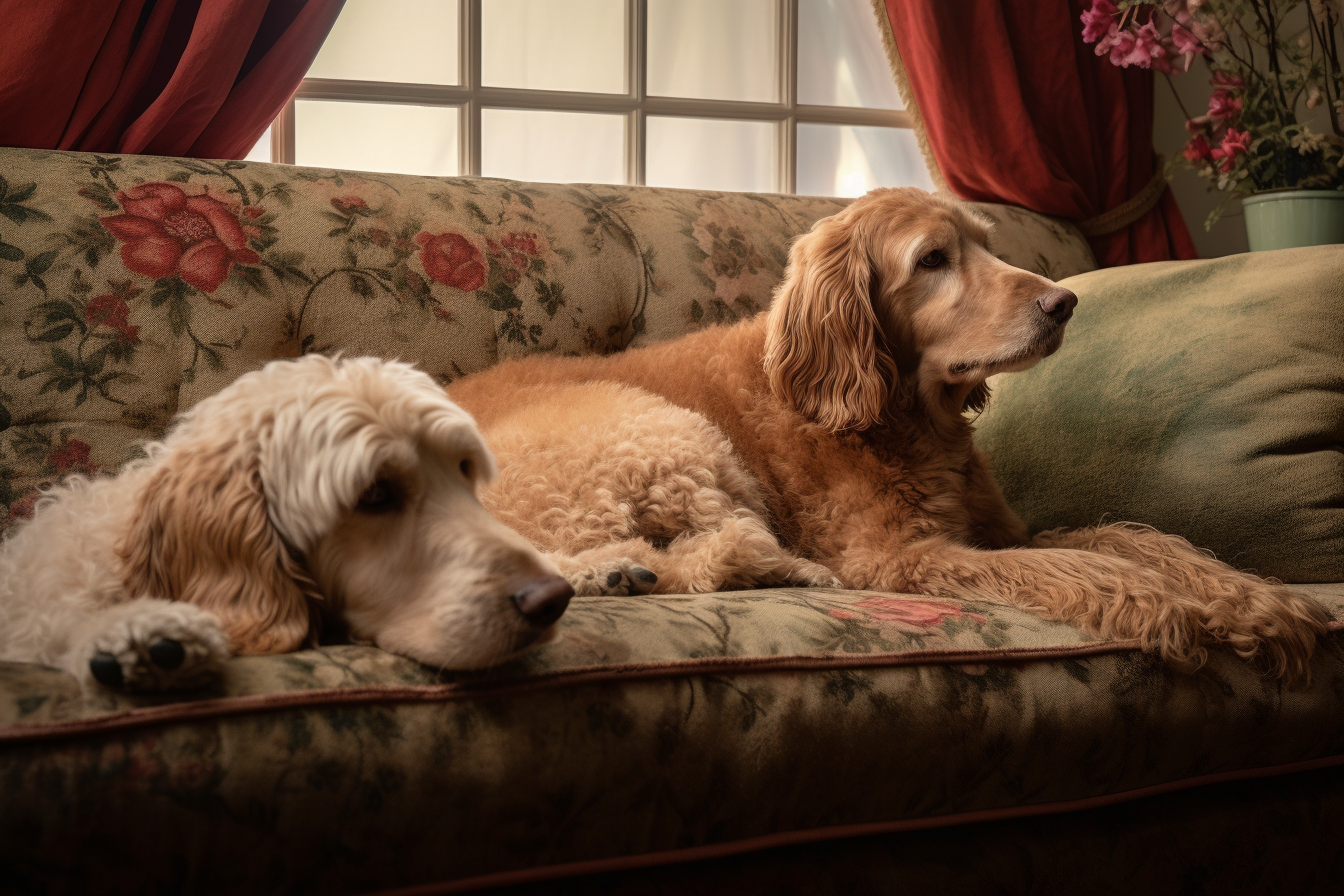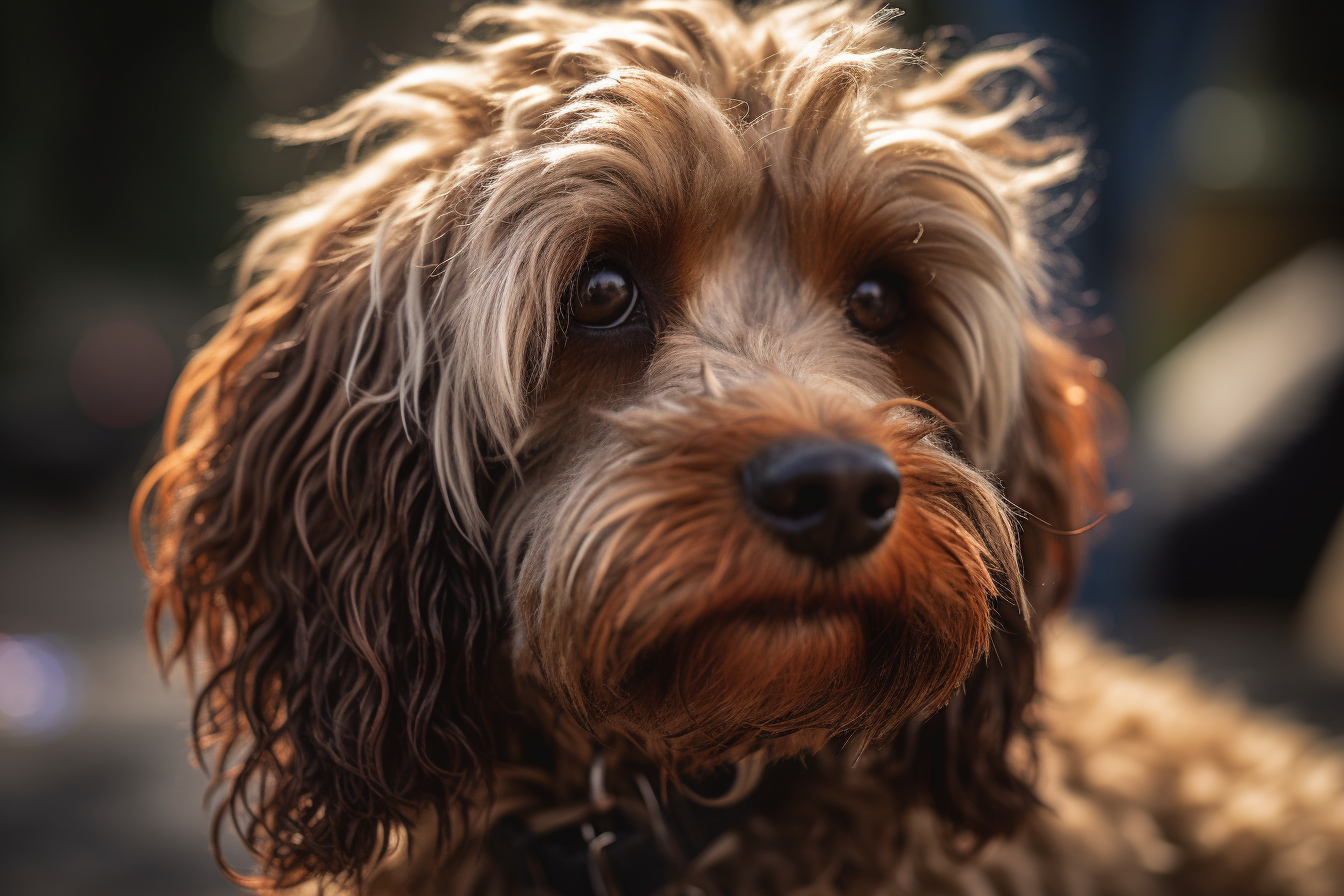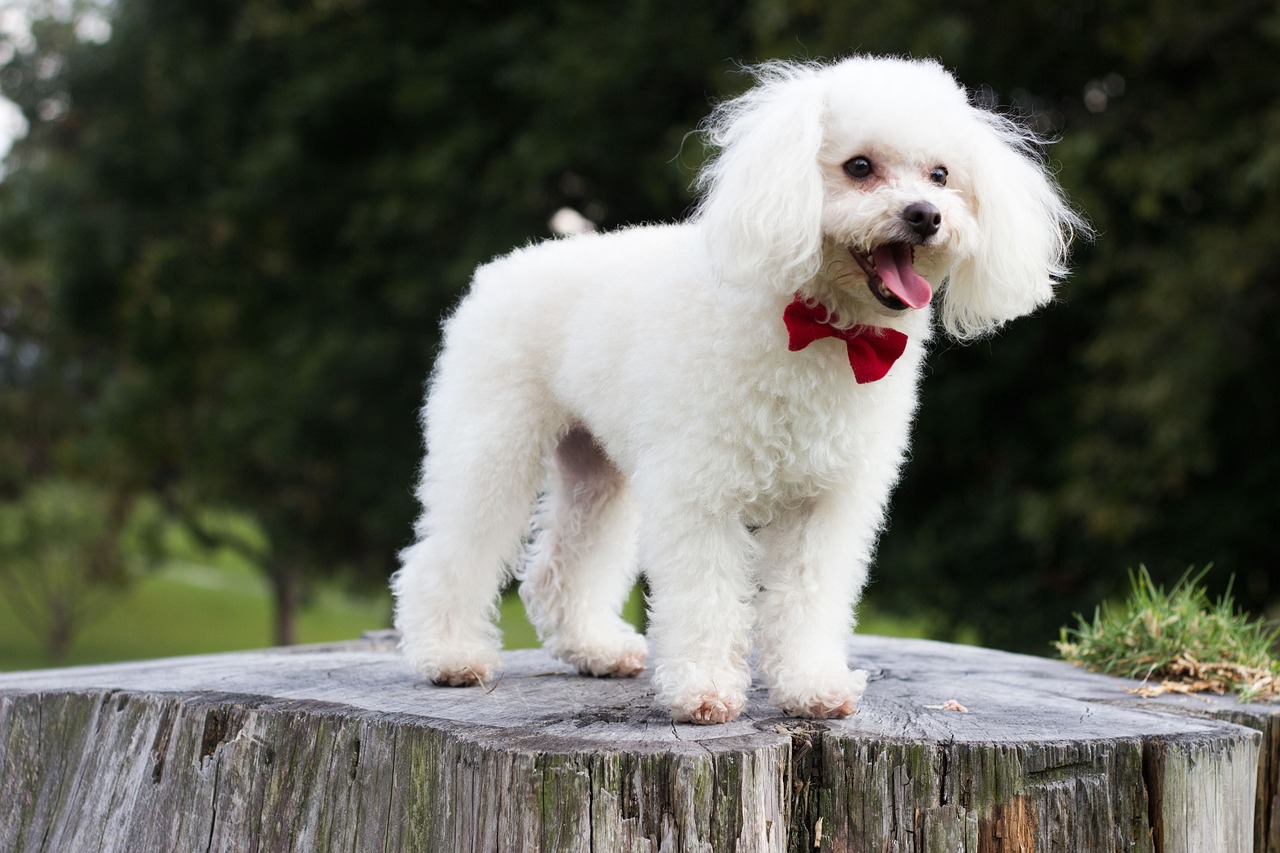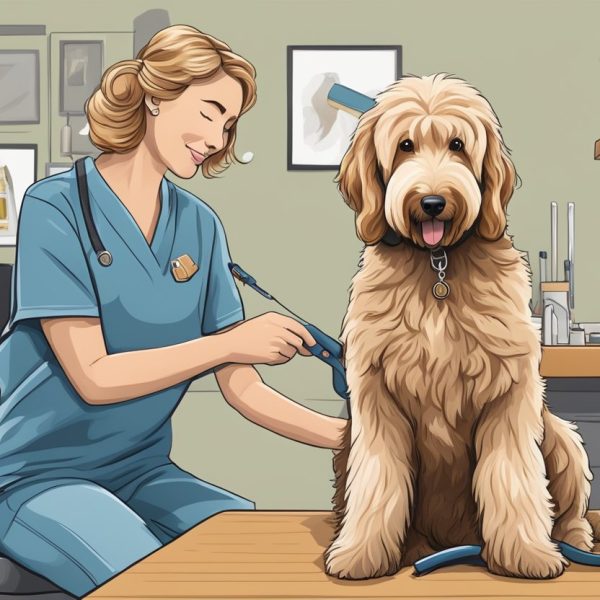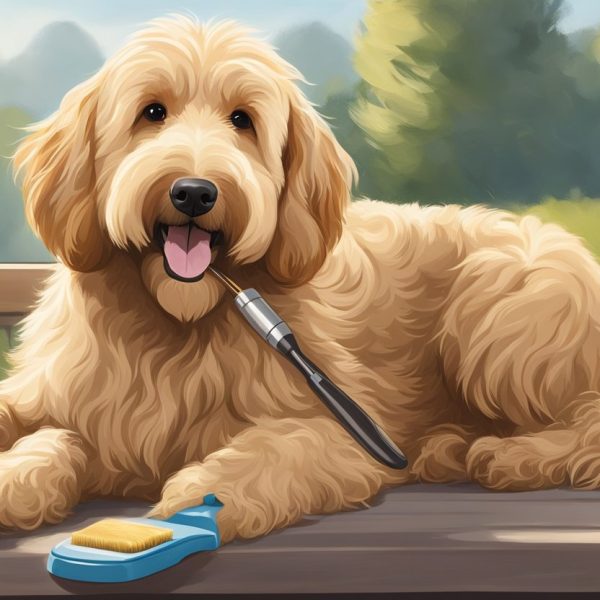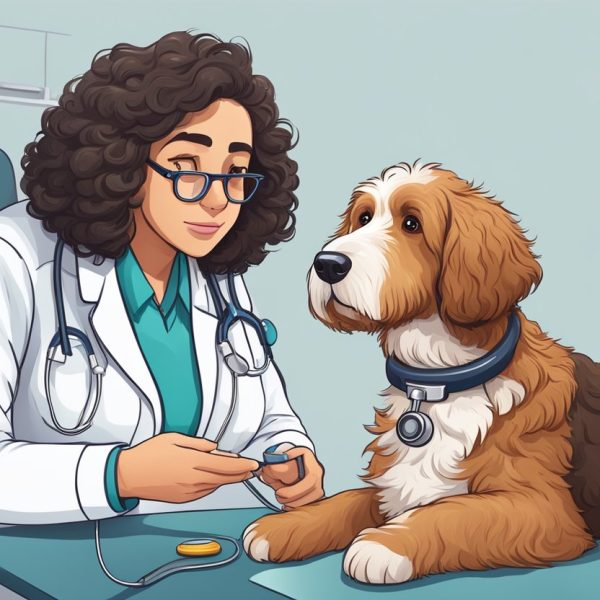When discussing dog breeds, opinions often vary, and poodles sometimes get labeled as the “worst” by some individuals. This label, curious as it may seem, often comes from certain perceptions about their temperament and needs. Some argue that poodles are high-maintenance due to their grooming requirements, as their curly coats need regular attention, which can be a commitment for busy owners.
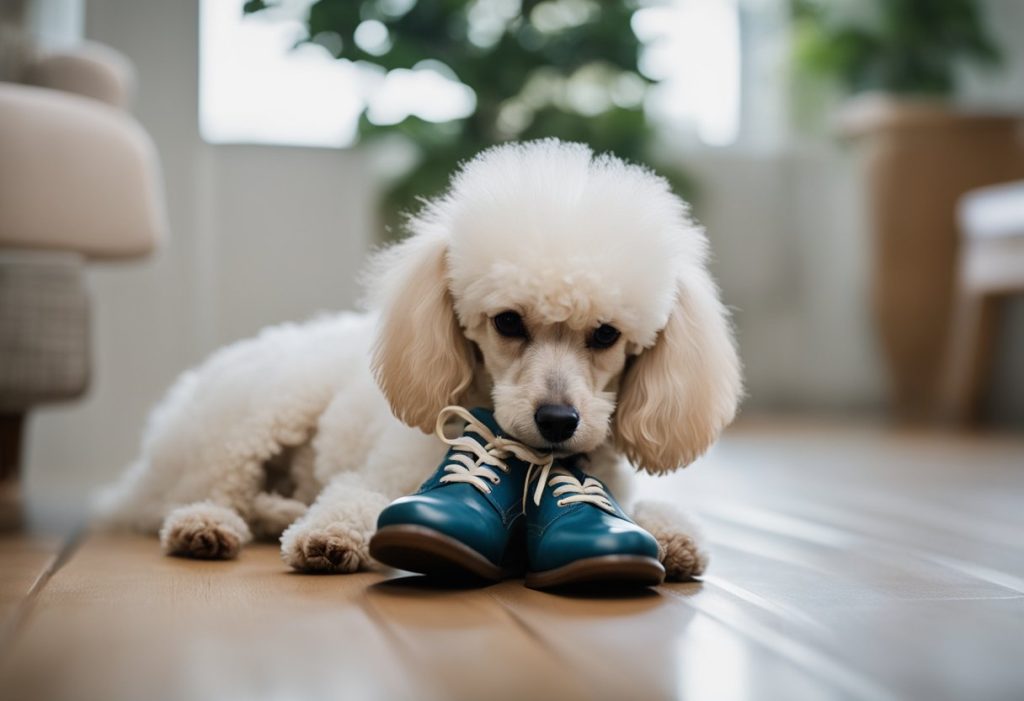
Others suggest that poodles are not suitable as lap dogs and require a significant amount of mental and physical stimulation to remain happy and healthy. This breed is known for its intelligence and energy, meaning that a passive or sedentary lifestyle could lead to a poodle acting out or developing undesirable behaviors.
Additionally, the perception that poodles are sensitive is also a double-edged sword. While their intuition can make them excellent companions and alert to their owner’s emotions, it may also mean they are more prone to stress and anxiety if not given the proper care and attention. To understand why poodles may not be the ideal fit for everyone, it’s essential to consider these aspects of their nature and care needs.
Myths and Misconceptions


In this section, you’ll discover how common stories about poodles may not be as accurate as they seem. These myths often stem from a lack of understanding about the breed’s true nature and needs.
Misunderstood Temperament
Poodles are often pegged as snappy or aloof, but your experience might say otherwise. These dogs are in fact known for their loyal and affectionate nature, making them excellent companions. Their intelligence means they respond well to training, striving to please their owners.
Exaggerated Grooming Needs
Yes, poodles require regular grooming, but the notion that they are overly high-maintenance is overblown. While their distinctive curly coats do need care to prevent mats, setting a consistent grooming routine can manage their needs without hassle. Regular brushing and occasional professional grooming will keep your poodle’s coat in great shape.
Temperament Traits
In understanding why poodles might be considered challenging by some, it’s essential to look at their temperament traits, such as their sensitivity levels and rigorous activity requirements.


Sensitivity Levels
Poodles are known for their high sensitivity, which means they can be quite reactive to various stimuli in their environment. For instance, an unexpected touch or a loud noise can easily startle them. If your home is bustling with noise and activity, a poodle may feel anxious or unsettled.
Activity Requirements
On the other end, poodles have substantial activity requirements. They are not the type of dogs that are content with being sedentary or left alone for long periods. They need consistent mental and physical stimulation—advance obedience or agility classes are often necessary—to stay happy and healthy. If you’re not an active person or lack time for intensive engagement, a poodle’s energy levels might be overwhelming.
Grooming and Maintenance
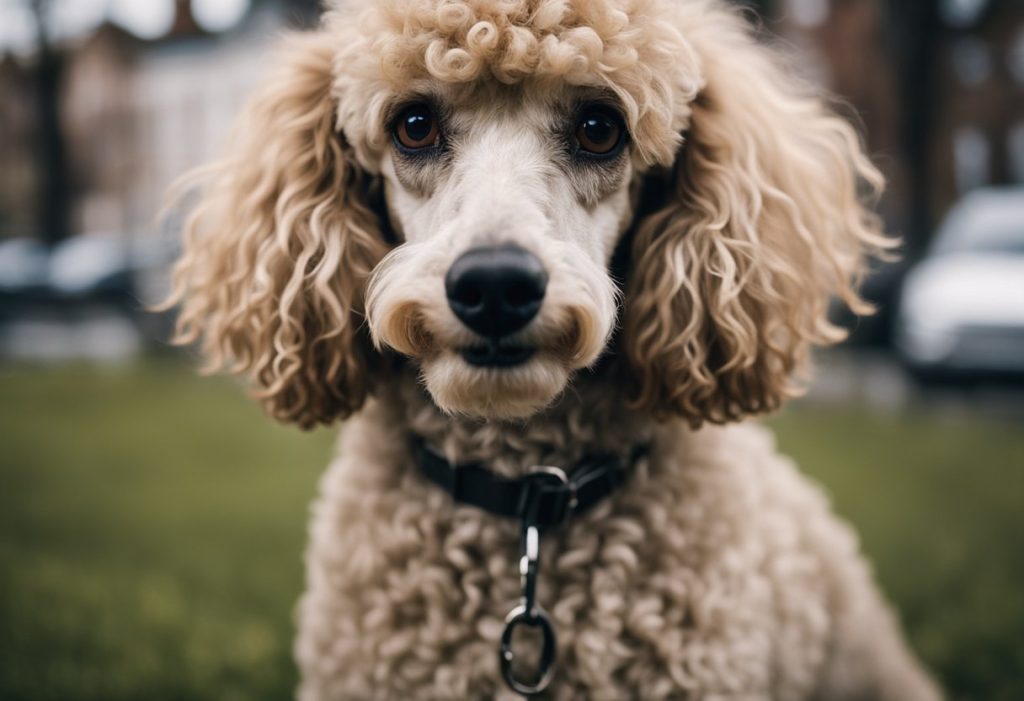

Poodles are adored for their curly coats, but maintaining that elegant look isn’t effortless. It actually requires a substantial routine.
Coat Care Commitment
Your poodle’s coat needs daily attention to stay mat-free and healthy. Brushing at least every other day is the bare minimum to prevent tangles, along with regular baths every 3-6 weeks depending on their activity level. Adequate coat care goes beyond simple aesthetics; it’s necessary for their wellbeing.
Professional Grooming Costs
The intricate nature of poodle grooming often necessitates trips to a professional groomer. Bi-monthly appointments can be the norm for standard poodles, especially if they participate in shows. Expect grooming costs to rise with the expertise and frequency of care your poodle demands.
Health and Genetics
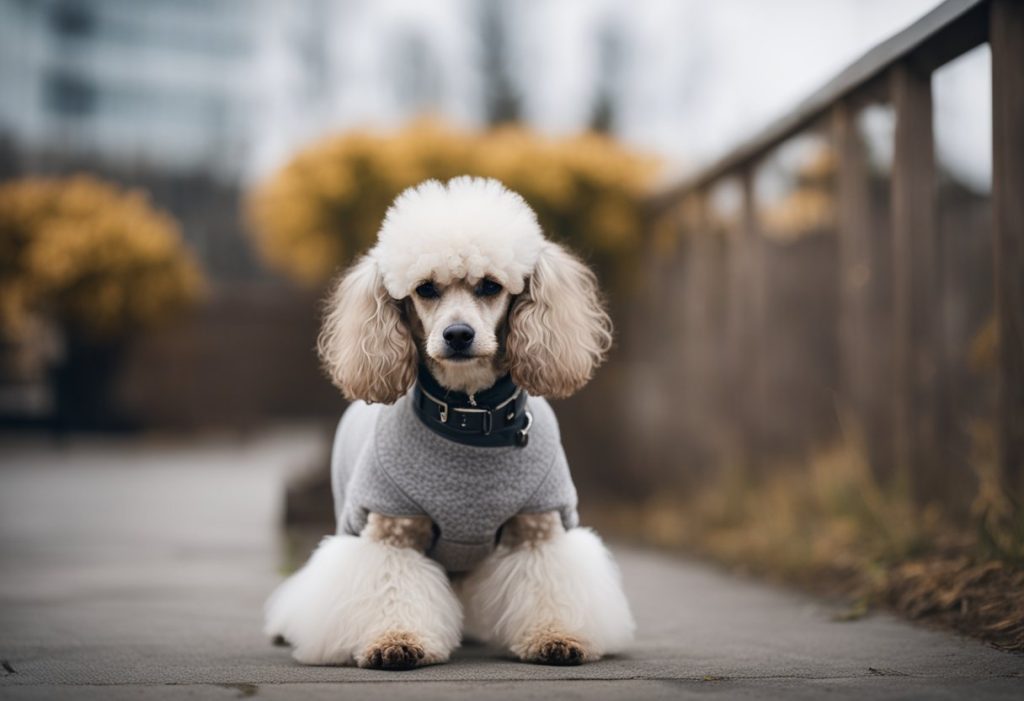

In your journey with poodles, it’s important to be aware of certain health challenges. These dogs can inherit conditions that require careful management, and they might show sensitivities in their diet that call for a tailored nutrition plan.
Inherited Health Conditions
Poodles come with a genetic predisposition to certain health issues. For example, they are at risk for hip dysplasia, a condition in which the thighbone doesn’t fit snugly into the hip joint, causing pain and arthritis. Additionally, your poodle might inherit eye diseases that could impact their vision over time.
- Common Genetic Conditions in Poodles:
- Addison’s Disease
- Gastric Dilatation-Volvulus
- Thyroid Issues
- Seizure Disorders
Monitoring your poodle’s health with regular vet check-ups can catch these issues early on.
Diet Sensitivities
Poodles may exhibit reactions to certain foods, leading to skin allergies or gastrointestinal distress. Integrating a balanced diet that’s free of common allergens can help mitigate these concerns. Here’s a snapshot of components to watch in their diet:
- Potential Allergens:
- Grains: Wheat and corn can sometimes cause adverse reactions.
- Proteins: Beef, chicken, or dairy can trigger sensitivities.
It’s crucial to monitor your poodle’s reaction to different foods and work with your vet to design a diet that suits their specific needs.
Training and Intelligence
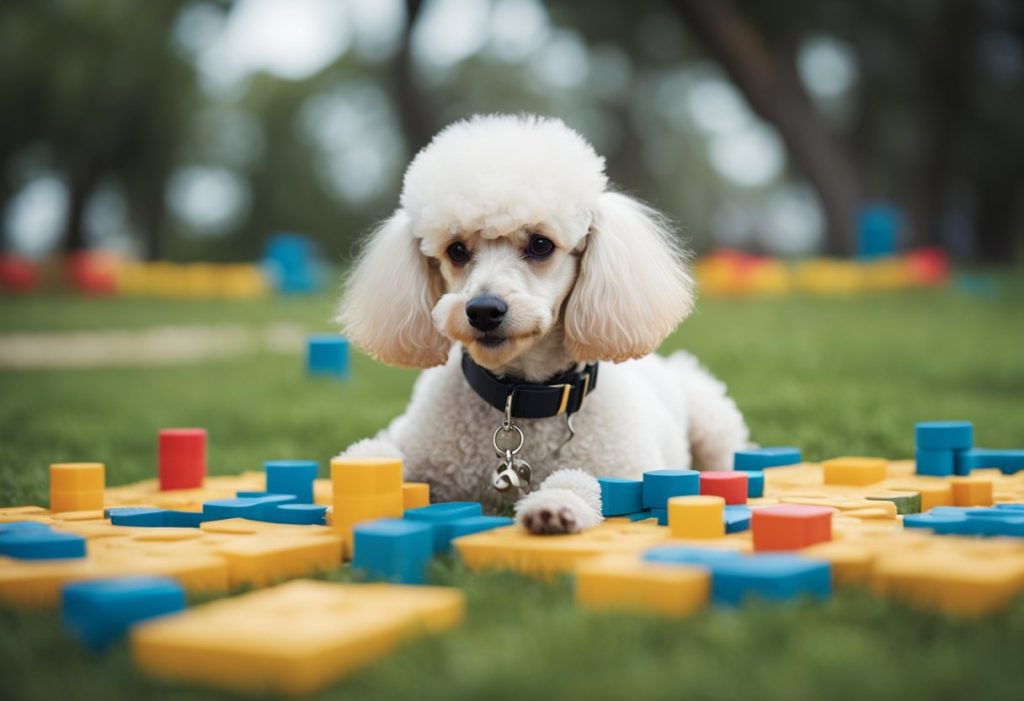

When you bring a poodle into your life, you may encounter some training challenges. Poodles have a reputation for high intelligence, which often translates to them knowing their own mind and potentially displaying stubborn streaks.
Training Challenges
Your poodle’s intellectual capabilities are a double-edged sword; while they can learn quickly, they might also get bored easily. If your training sessions lack variety or are too predictable, your smart companion may lose interest. The key is to keep sessions engaging and challenging to hold your poodle’s attention.
Stubborn Streaks
It’s not uncommon for poodle owners to witness a stubborn streak in their pets. Your poodle might sometimes appear to have its own agenda and not immediately obey, especially if it finds something more interesting. Consistency and patience are crucial, as is ensuring that you’re offering the right incentives to encourage your poodle to follow your guidance.
Cost of Ownership


When considering bringing a poodle into your life, it’s important to be aware of the financial commitment. Poodles have distinct needs that can significantly affect your wallet right from the start and as time goes on.
Initial Purchase Price
The initial purchase price of a poodle can be a sizable investment. For a well-bred poodle from a reputable breeder, you may find prices ranging widely depending on the breeder, the dog’s lineage, and whether the poodle is of the standard, miniature, or toy variety. Purchasing a standard poodle may have you paying anywhere from $1,000 to $2,000, while miniature and toy poodles might fetch a price tag from $1,000 up to $3,000 in some cases.
Ongoing Expenses
On top of the purchase price, your poodle will have ongoing expenses that include food, routine veterinary care, grooming, and more. A poodle’s hypoallergenic coat, while beneficial for allergy sufferers, requires regular professional grooming which can cost between $50 to $100 per session. In terms of health, poodles are prone to certain genetic conditions, so you might consider setting aside a budget for potential veterinary costs.
- Monthly expenses such as high-quality dog food, treats, and supplies can range from $80 to $150, but can increase depending on any additional care your poodle may require. These costs highlight why understanding the financial implications of poodle ownership is crucial. Estimating Monthly Costs
Social Considerations
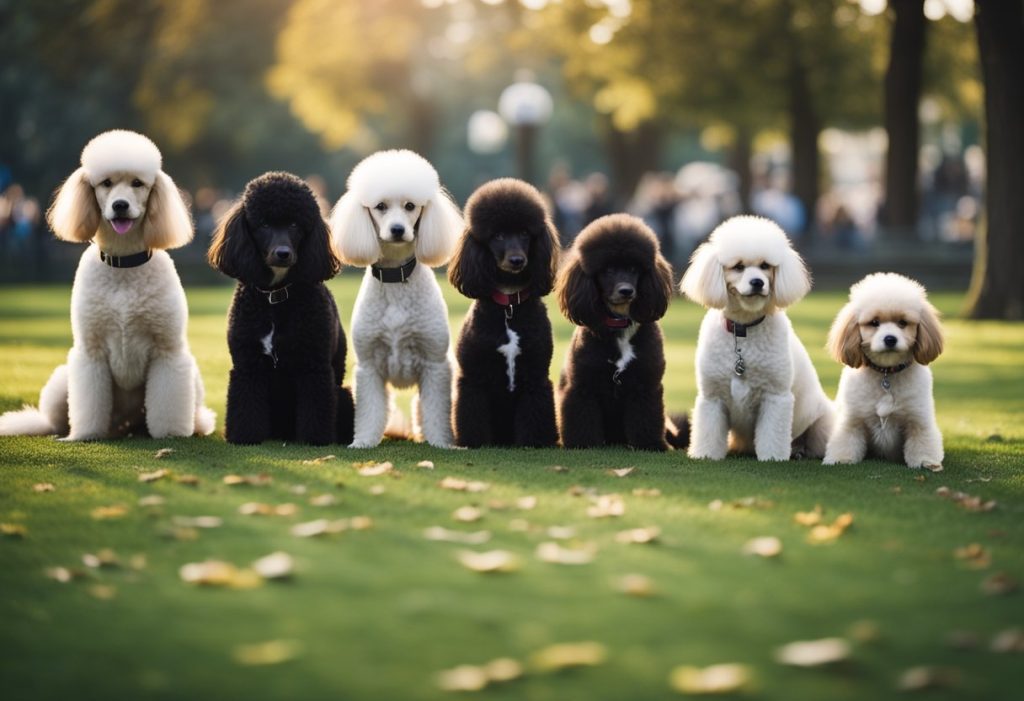

When considering a poodle as your next pet, it’s important to contemplate their social nature and how they interact in a home setting, particularly with other pets and the implications of their popularity.
Interaction With Other Pets
Poodles have a distinctive social temperament and may require early socialization to coexist peacefully with other animals. If you’re planning to introduce a poodle into a household with existing pets, be mindful of their initial reactions and interactions. According to Green Matters, poodles might not always appreciate the companionship of other pets, which could necessitate dedicated efforts on your part to facilitate smooth introductions and ongoing harmonious relationships.
Poodle Popularity Downsides
The popularity of poodles can be a double-edged sword; while they are well-loved and sought after, this can also lead to a higher prevalence of poodle-specific problems. For instance, popularity can sometimes encourage unethical breeding practices to meet demand. This overbreeding can lead to temperament issues or reinforced negative traits. As highlighted by Doggy Champ, being aware of the potential issues stemming from their popularity, such as widespread misconceptions and increased demand leading to these problems, should be a crucial part of your decision-making process when considering this breed.
Living Environment
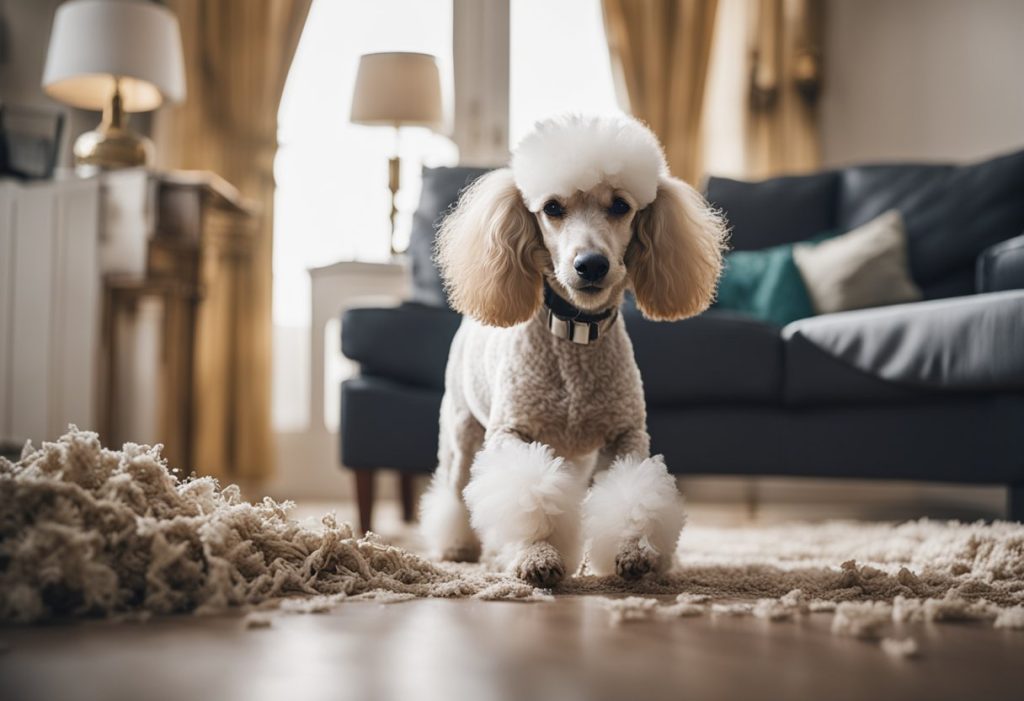

Before you consider a poodle as your next pet, it’s essential to understand their specific living environment needs. They thrive in environments that meet their space and exercise requirements, and their adaptability to different living situations can vary.
Space and Exercise
Your poodle will need ample space to roam and play. Despite their varying sizes, from toy to standard, they share a common need for regular exercise to keep them mentally and physically stimulated. Their intelligence and energy levels demand an environment where they can explore, so small, confined spaces might not be ideal. To meet their needs, you:
- Should have a fenced yard or access to a park for daily exercise.
- Might find frequent long walks or active play sessions necessary.
Adaptability
Poodles can be sensitive to their living conditions, especially when it comes to changes in their environment or routine. While they can adapt to various living situations, from apartments to houses, their adaptability relies heavily on maintaining a consistent exercise regimen and mental engagement. If you live in an apartment, consider:
- Regularly scheduled exercise to keep your poodle content.
- Providing puzzles and games that cater to their mental needs.
Frequently Asked Questions
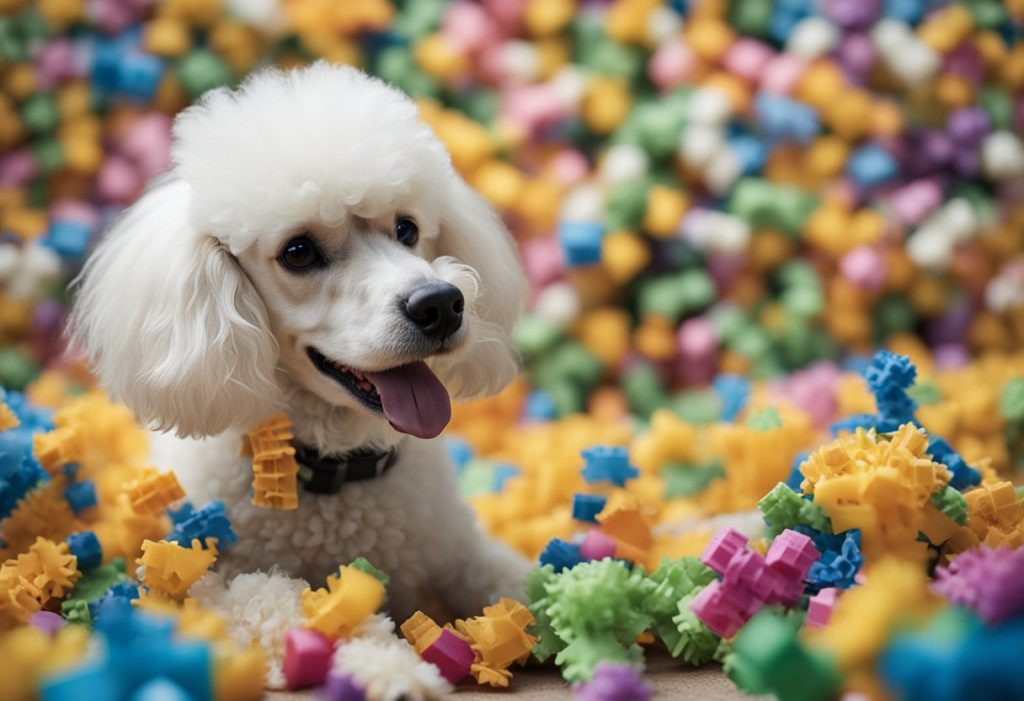

In navigating the complexities of dog ownership, Poodle-specific challenges can arise. These include health issues, grooming demands, personality traits, and potential behavioral concerns. Understanding these elements can provide insight into whether a Poodle is a suitable companion for your lifestyle and family.
What are some common challenges faced by Poodle owners?
Poodle owners often grapple with the breed’s high-maintenance grooming needs. Their curly coats require regular professional grooming, and they can be susceptible to skin allergies and ear infections which necessitate additional care.
Can owning a Poodle have any drawbacks?
Yes. The challenges include the expense of ownership, with potential health issues like Addison’s disease raising the need for veterinary care. Their need for mental stimulation and exercise can also be a drawback if you’re not able to dedicate sufficient time to their care.
What personality traits can make Poodles a difficult pet for some families?
Some families might find Poodles difficult due to their strong-willed nature. Their high intelligence can lead to stubbornness, and if not well-trained, they may exhibit unwanted behaviors. They may also appear aloof or selective in their social interactions.
Are there any reasons why a Poodle might not be the right pet for someone?
If you’re looking for a low-maintenance dog or if your home environment can’t accommodate high-energy breeds, a Poodle might not be suitable. Those with limited time for training, exercise, and grooming should consider a different breed.
How does Poodle behavior compare with other breeds in terms of aggression?
Poodles are not typically known for aggression; however, like any breed, they can develop aggressive tendencies without proper training and socialization. Their reaction to unfamiliar situations or individuals might be misunderstood as aggression.
Do Poodles tend to experience more anxiety than other dog breeds?
Poodles may indeed experience separation anxiety if left alone for extended periods, more so than some other breeds. They thrive on interaction and can become anxious or display unwanted behaviors when deprived of social engagement.




